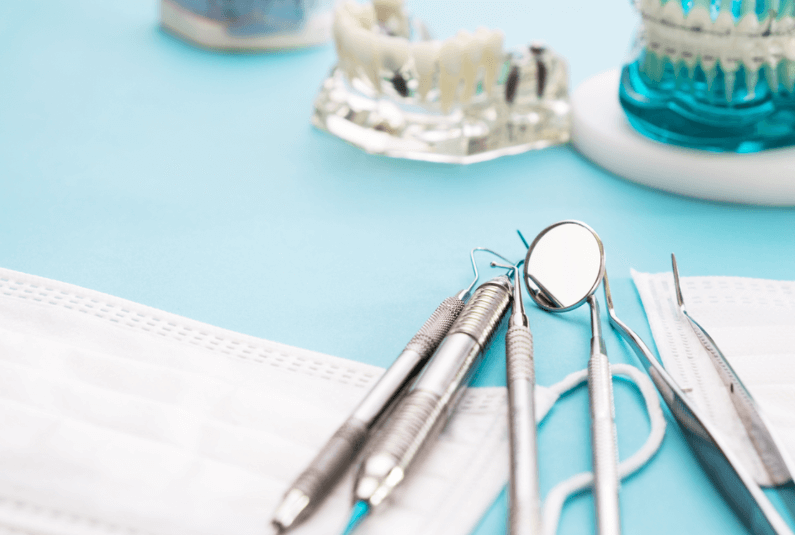Dental Negligence Solicitors
No-one welcomes a trip to the dentist – very few do, anyway! There is always that nagging sense that something will go wrong or at the very least we are going to be subjected to acute pain. Thankfully it is rare that mishaps happen, and our fears prove to be unfounded, more often than not. On the rare occasion that things do go wrong though, the consequences for the unfortunate patient can be traumatic, painful and in some cases very serious.
What is Dental Negligence?
Dental negligence is a form of medical negligence which is also known as clinical negligence. It occurs when a dental practitioner accidentally causes personal injury to a patient whilst carrying out dental treatment. In legal terms, the patient is said to have received negligent treatment.
Dental professionals owe a duty of care to their patients. If the standard of care received from the dentist was below the standard that could reasonably be expected from a dental professional and you suffered injury directly as a result of that negligence, then you should be able to make a successful dental negligence compensation claim.
In a successful claim, you will receive compensation for the personal injury that you suffered. The definition of personal injury in this context includes psychological injury. Many victims of dental negligence suffer acute trauma as a result of their experience.
Your claim is also likely to include a financial element, such as loss of earnings if you have to take time off work. It may also include a claim for past and future treatment costs.
It is important to note that in order to make a successful claim, you must not only be able to prove that the dentist was negligent but that you also suffered an injury as a result of that negligence. If the dentist was negligent, but no injury or loss resulted, then there is no claim to make.
What are the main types of Dental Negligence?
Here are some examples of dental negligence:
1. Incorrect diagnosis, misdiagnosis or missed diagnosis of dental problem
- If a wrong diagnosis is made about the cause of a dental problem, it could lead to incorrect treatment being given. This may not only lead to the original problem being made worse but could also give rise to a new dental problem that will need treatment.
- Missed diagnosis, or failure to diagnose, the signs of certain types of oral cancers
- Failing to spot gum disease e.g., gingivitis, which can lead to more serious complications, such as periodontitis
- Missing the signs of tooth decay
- Failing to spot when root canal treatment is needed
- Failing to spot the warning signs of periodontal disease
- Failure to notice the need for a filling
2. Dental injury caused by medical negligence
- Taking the wrong tooth out
- An extraction goes wrong, leaving damage to the gums or nerves
- Patient left with infection because of unsafe equipment or poor practice by the dentist, such as leaving broken root files in filled teeth!
- Injury caused by negligent use of dental equipment
- Treatment of a poor standard which leaves the patient requiring further treatment or rectification dental work, including poor treatment relating to implant surgery and/or the placement of crowns
3. Dental negligence causing nerve damage
The prospect of this type of injury being caused by dental negligence is the stuff of nightmares for those of a nervous disposition. It’s only due to the high standards, not only expected of dental practitioners, but that they almost always demonstrate in their work, that dental nerve damage negligence is not more common that it is.
As dentists are only human, errors can happen and if the treatment received by a patient is of a substandard nature it can result in nerve damage. This may be temporary nerve damage or permanent. Nerve damage caused by dental negligence can lead to numbness in the lips, tongue and the face.
4. Dental negligence caused by failure to obtain consent to treatment
In days gone by, dental treatment, like medical treatment in general, was provided more on the basis of an implied mutual understanding. Those days are largely in the past.
Now, not only should consent be obtained by the signing of consent to treatment forms, but it is also incumbent on the dentist to obtain a clients’ informed consent. Hence the introduction of ‘treatment plans’ which carefully set out what treatment will be provided, when and at what cost (if the patient is paying privately).
For valid consent to have been obtained before treatment is started, your dentist must advise you:
- The nature of the treatment proposed and why it is being recommended
- Any risks, balanced up against the benefits of having the treatment
- If there are any alternative forms of treatment and any associated risks
- The cost of treatment, broken down as required
- What is likely to be the outcome, should you decide not to have any treatment
Valid consent will be obtained by the patient consenting to the proposed treatment after having been advised of the considerations listed above. It assumes that the patient is competent:
- To understand the treatment plan
- To make a judgement on the information provided
- Is able to communicate their decision, having made it
Furthermore, there must have been no attempt to coerce the patient into providing consent.
If treatment goes wrong and a patient suffers injury as a result, often the success of any subsequent dental negligence claim may hinge on whether or not the patient was provided with informed, valid consent to the treatment they received.
What have I to gain by making a dental negligence claim?
- The cost of remedial work to repair any damage to your teeth will form part of your claim. The cost may be substantial, and a successful dental negligence claim could be your only means of recovering that cost from the negligent dentist or their insurers.
- You will be able to claim for the pain, suffering and loss of amenity that you experience as a result of the dental accident. This will not only consist of compensation for the injury you sustained, but the amount awarded will reflect the effect the injury has had on your everyday life.
- Psychological injuries. You may be able to claim for the trauma caused by dental negligence and the lasting effects of it. It is only possible to claim for a recognised psychological illness that is diagnosed as such by an appropriate consultant psychologist or psychiatrist.
- You’ll be able to recover any loss of earnings caused by being off work as a result of the injuries that you have sustained and/or the time taken off to undergo remedial dental treatment and to recuperate.
- The amount of dental negligence compensation that you recover overall will depend on the severity of your injuries and the prognosis: that is how long it is expected it will be, before you make a full recovery, or the best recovery that you are going to be able to make.
How do I go about making a dental negligence claim?
Dental negligence claims are a specialised area of medical negligence claims. As you may have already gathered from reading this page, they can be fairly complex matters. It is important to seek out a specialist dental negligence solicitor.
At Mooneerams solicitors, we work in partnership with experienced dental negligence solicitors who have taken on and settled, or won at court, many dental injury claims. Whether you want to start a claim now or just need to seek out some advice following a dental injury, call Mooneerams now on 029 2048 3615 and you will be able to talk over your problem with a specialist dental negligence solicitor, with no obligation to take the matter further afterwards.
If you decide that you’d like to go ahead, our solicitor partner will explain the process for starting your claim and how it will work.
It doesn’t matter whether the dentist who you will be claiming against is an NHS dentist or a dentist in private practice. You’ll still be able to make a claim, either way.
Oh, and by the way all dentists are insured against claims for negligence – so if you win your case, it will be the insurers, not the dentist themselves, who will pay out compensation.
Can I get No Win No Fee to make a dental negligence claim?
A No Win, No Fee arrangement is actually a conditional fee agreement. We are able to offer No Win No Fee arrangements to clients who wish to pursue medical or clinical negligence claims in most circumstances and that applies to dental negligence claims too. Our dental negligence partners will discuss this with you if you decide that you would like to make a dental negligence claim through Mooneerams.
How long do I have to make a dental negligence claim?
The general rule is that you have three years to make a claim, or to start a claim. The three year period runs from the time that the negligent work was carried out, or the date when you realised that the treatment you received was negligent treatment.
For claims made on behalf of children there is no time limit until they reach the age of 18. At that stage they have until their 21st birthday within which to start a claim.
There are further rules about time limits, if the claim is being made on behalf of someone who lacks the mental capacity to make a claim themselves. Our dental negligence solicitors will be able to advise further, but in summary form, there is no upper time limit for a personal lacking mental capacity, to start a claim.
What shall I do next?
- Call Mooneerams on 029 2048 3615 to talk to a dental negligence solicitor
- Fill in the form on our Contact webpage and we’ll get a dental negligence solicitor to call you.
- Alternatively fill in the form on this page, to receive a call back from one of our dental negligence partners.





















